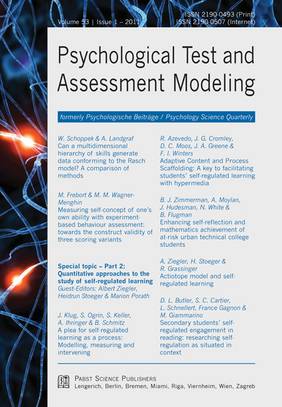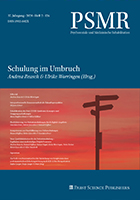Klug, Ogrin, Keller, Ihringer, and Schmitz remind us in their contribution of the importance of viewing self-regulated learning as a process. They show convincingly how this view offers decisive advantages for the design of training schemes as well as for the development of measurement instruments.
Butler, Cartier, Schnellert, Gagnon, and Giammarino analyze student engagement in learning through reading as a situated process in context. They use a mixed-methods design to find patterns within and across 31 classrooms at multiple levels of aggregation. In their stimulating analyses, the authors use frequency, factor analytic, and cluster analyses to create descriptive profiles of SRL (across emotion, motivation, cognition, and metacognition).
Azevedo, Cromley, Moos, Greene, and Winters stress the importance of scaffolding conditions (adaptive content and process scaffolding, adaptive process scaffolding, and no scaffolding). Students in the adaptive content and process scaffolding condition gained significantly more declarative knowledge and showed qualitative shifts in the their mental models of the topic. Students with no scaffolding were the least effective at regulating their learning and used fewer key self-regulatory processes during the activity.
Zimmerman, Moylan, Hudesman, White, and Flugman describe a classroom-based intervention study in math. Students were randomly chosen to receive self-regulated learning instruction or conventional instruction. For the students in the self-regulated learning condition, the results indicate, among other things, better performance. They were also better calibrated in their task-specific self-efficacy beliefs before solving problems and in their self-evaluative judgments after solving problems. Moreover, training improved the students pass rates on a national gateway examination in mathematics by 25% in comparison to that of the control students.
Ziegler, Stoeger, and Grassinger suggest an analysis of self-regulated learning on the basis of their systemic approach, the actiotope model. They employ an empirical study to examine whether a more adaptive actiotope can contribute to a better initial experience with self-regulated learning when dealing with a newly introduced subject in school. The results of their hierarchical linear modeling offer encouraging insights.
Part I. of the issue appeared in Psychological Test and Assessment Modeling 4/2010.
Psychological Test and Assessment Modeling, Volume 53, 2011 (1)






















